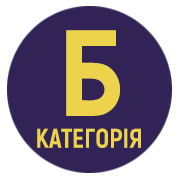CURRENT TRENDS IN ENVIRONMENTAL EDUCATION AND FORMATION OF FOREIGN LANGUAGE COMPETENCE
DOI:
https://doi.org/10.32782/ped-uzhnu/2024-4-12Keywords:
nature, sustainable development, integrative learning, informal methods, multimedia technologiesAbstract
This paper analyzes a number of current methods of teaching English as a foreign language by western and domestic educators. The main focus is placed on approaches helping educators to develop a comfortable learning environment for Ukrainian students affected by the ongoing war against Russia. The need in interdisciplinary learning is substantiated from the viewpoint of knowledge acquisition. By integrating interdisciplinary content, collaborating faculty facilitate students’ in-depth learning, boost their research skills and creativity, and improve students’ ability to explore the subject under study from different prospectives. A noteworthy example of collaborative learning demonstrates how representatives of different majors carried out a project on marine conservation working together. Along with the idea of sustainable development, the relationship with nature plays the key role in creating a calm and positive learning environment. Public attitudes toward the nature are often determined by economic growth considerations and people’s personal goals. Cherishing the nature as such and adjusting collective and individual lives to its demands are being reevaluated in modern education as well as the issues of excessive consumption and production of goods. A number of examples illustrates how to integrate environment-friendly activities in higher education. As a part of informal education, outdoor and online activities are analyzed as a means of developing creativity and self-paced reflective learning. Although online education is not a substitute for face-to-face communication, it enables multilayered presentations of educational content with the help of modern technologies, such as platforms Zoom, Skype, Google meets, etc. Providing students with tools allowing them to work independently is one of the main features of modern education.
References
Гнатюк В.В., Щербакова Н.М., Різак Г.В. Екологічна освіта та формування екологічної свідомості: шлях до гармонії з природою. Перспективи та інновації науки. 2024. No 5(39). С. 143–154. https://doi.org/10.52058/2786-4952-2024-5(39)-143-154
Орденов С. С. Формування екологічної свідомості в умовах глобалізації. Вісник НАУ. 2021. No 2 (34). С. 46–50. URL: https://jrnl.nau.edu.ua/index.php/VisnikPK/article/view/16314/23504
Питання екології – в центрі уваги нашої молоді. URL: https://nuft.edu.ua/news/podiyi/pitannya-ekologiyi-%E2%80%93-v-czentri-uvagi-nashoyi-molodi
Психологічне дослідження творчих перцептивних процесів на різних вікових рівнях. За ред. В.О. Моляко. Кіровоград, 2012. 210 с.
Саєнко Т. Екологічна освіта – основа екобезпеки та сталого розвитку. Вища освіта України. 2020. No 2. С. 30–36. https://doi.org/10.31392/NPU-VOV.2020.2(77).06
Хачатурян Х. В. Навчання іноземним мовам через активізацію мовних можливостей людини на основі музичного сприйняття. К., 1998. 200 с.
Ченбай Н. А. Формування екологічної свідомості як відповідь на виклики сьогодення. Вісник НАУ. 2021. No 2 (34). С. 71–76. URL: https://jrnl.nau.edu.ua/index.php/VisnikPK/article/view/16319/23508
Ardoin, N. M., Bowers, A. W., Gaillard, E. Environmental education outcomes for conservation: A systematic review. Biological conservation. 2020. No 241. Р. 108224. https://doi.org/10.1016/j.biocon.2019.108224
Berigny, W. (onacloV), Woolsey, E., & Cook, J. Climate change education: fostering dialogs between Science and Art. The International Journal of Climate Change: Impact and Responses. 2012. vol. 3 (2), 145–155. URL: http://www.Climate-Journal.com
Bonnett, M. Environmental education and the issue of nature. Journal of Curriculum Studies. 2007. 39(6), 707–721. https://doi.org/10.1080/00220270701447149
Filho, W. L., Shiel C., & Paço A. Implementing and operationalizing integrative approaches to sustainability in higher education: the role of project-oriented learning. Journal of Cleaner Production. 2016. 133. 126–135. https://doi.org/10.1016/j.jclepro.2016.05.079
Jacobson, S. K., Seavey, J. R., & Mueller, R. C. Integrated Science and Art Education for Creative Climate Change Communication. Ecology and Society. 2016. vol. 21, no. 3, 2. http://www.jstor.org/stable/26269971.
Kelly, J., McCright, A., & Dietz, T. Climate Change and Society: Toward Online Pedagogy. Human Ecology Review. 2015. 21(2), 49–64. http://www.jstor.org/stable/24875132.
Lowell, C. Beyond “The Lorax?” the Greening of the American Curriculum. The Phi Delta Kappa. 2008. 90(3), 218–222. http://www.jstor.org/stable/20493594
Misawa, K. The pervasiveness of the rational-conceptual: an educational-philosophical perspective on nature, world and ‘sustainable development’, Ethics and Education. 2021. 16 (3). 289–306. https://doi.org/10.1080/17449642.2021.1908647
Popova M. Alan Alan Lightman on the Longing for Absolutes in a Relative World and What Gives Lasting Meaning to Our Lives. URL: https://www.themarginalian.org/2018/03/27/alan-lightman-searching-for-stars-on-anisland-in-maine/
Pulkki, J. Humility imparts the wonders of nature: a virtue-ethical elaboration of some of Michael Bonnett’s thoughts. Environmental Education Research. 2023. 29 (6). 852–862. URL: https://doi.org/10.1080/13504622.2022.2083082
Samnidze, N., Didmanidze, I., Diasamidze, M., Akhvlediani, D. & Kirvalidze, N. Critical Factors Influencing Classroom Participation in Online Learning. Platforms. 2023. 1 (1). 26–33.
Trencher, G., Terada, T., & Yarime, M. Student participation in the co-creation of knowledge and social experiments for advancing sustainability: experiences from the University of Tokyo. Current Opinion in Environmental Sustainability. 2015. No16. 56–63.







